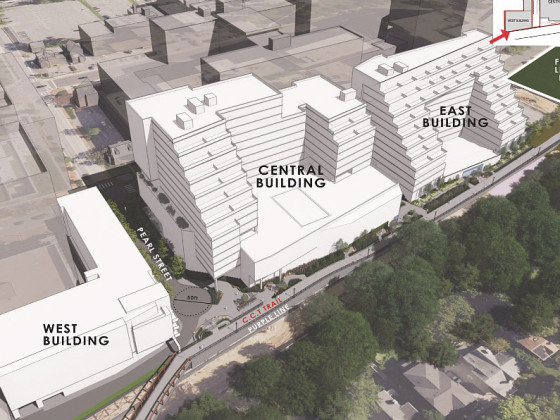 Do You Want to Buy That Home You Are Renting?
Do You Want to Buy That Home You Are Renting?
✉️ Want to forward this article? Click here.

Washington, DC is widely considered a tenant-friendly city, with local laws and regulations designed to protect the interests of renters. Among the many rights that tenants can use to their advantage is the Right of First Refusal, which essentially gives the renter the first crack at making an offer on their place if the landlord decides to put it on the market. Established by the Tenant Opportunity to Purchase Act (TOPA), the rules for the right of first refusal vary slightly by property type. However, no matter if the property is a house, condo or co-op, the landlord must provide the inhabitants of the property with an offer of sale. The tenants then have 30 days to respond to the offer.
For one DC resident (who prefers to remain anonymous) the rules worked to her advantage. Seven months into a one-year lease on her Kalorama condo, the owners called to let her know they would be putting the condo on the market. After a moment of panic at the unexpected prospect of becoming a homeowner, she contacted an attorney and a lender and discovered that she would be able to finance the purchase with monthly payments just $5 above what she was paying in rent. While condo fees and various repairs and maintenance on the property were not factored in, no real estate agent fees had to be paid on either side.
The rules for an offer of sale require that within seven days of the tenant requesting information, the owner must produce: a floorplan of the home (if one is available); an itemized list of monthly operating expenses for the home; utility consumption rates and capital expenditures for the previous two calendar years; and the most recent rent roll including a list of tenants and vacant units in the building. (Of course, some of these rules wouldn’t apply to a single-family home.)
The tenant and landlord have a minimum of 60 days to ratify the contract, and then the tenant has another 60 days to arrange financing. From the time the initial offer of sale is made, the tenant has a total of 180 days to reach settlement. If the tenant does not respond to the initial offer of sale within 30 days and another offer is accepted, they have 15 days (this is the right of refusal) to match the third-party sale contract.
Also, if the owner sells the property or signs a contract for a sales price that is more than 10 percent lower than the originally offered price, or if the deal includes some other terms of sale that indicate the owner has not been bargaining in good faith, then the tenant must be given a new offer of sale. Lastly, if 180 days pass without a contract or settlement, the entire process must start again.
The forms for the offer of sale and the right of first refusal, along with instructions, can be found at the DC Department of Housing and Community Development website.
Similar Posts
See other articles related to: dc condos, dclofts, renting in dc, right of first refusal
This article originally published at http://dc.urbanturf.production.logicbrush.com/articles/blog/do_you_want_to_buy_that_home_you_are_renting/1587.
Most Popular... This Week • Last 30 Days • Ever

While homeowners must typically appeal by April 1st, new owners can also appeal.... read »

A significant infill development is taking shape in Arlington, where Caruthers Proper... read »

A new mixed-use development would bring hundreds of new residential units and a healt... read »

A residential conversion in Brookland that will include reimagining a former bowling ... read »

After years of experimenting with its branded brick-and-mortar grocery concepts, Amaz... read »
DC Real Estate Guides
Short guides to navigating the DC-area real estate market
We've collected all our helpful guides for buying, selling and renting in and around Washington, DC in one place. Start browsing below!
First-Timer Primers
Intro guides for first-time home buyers
Unique Spaces
Awesome and unusual real estate from across the DC Metro














